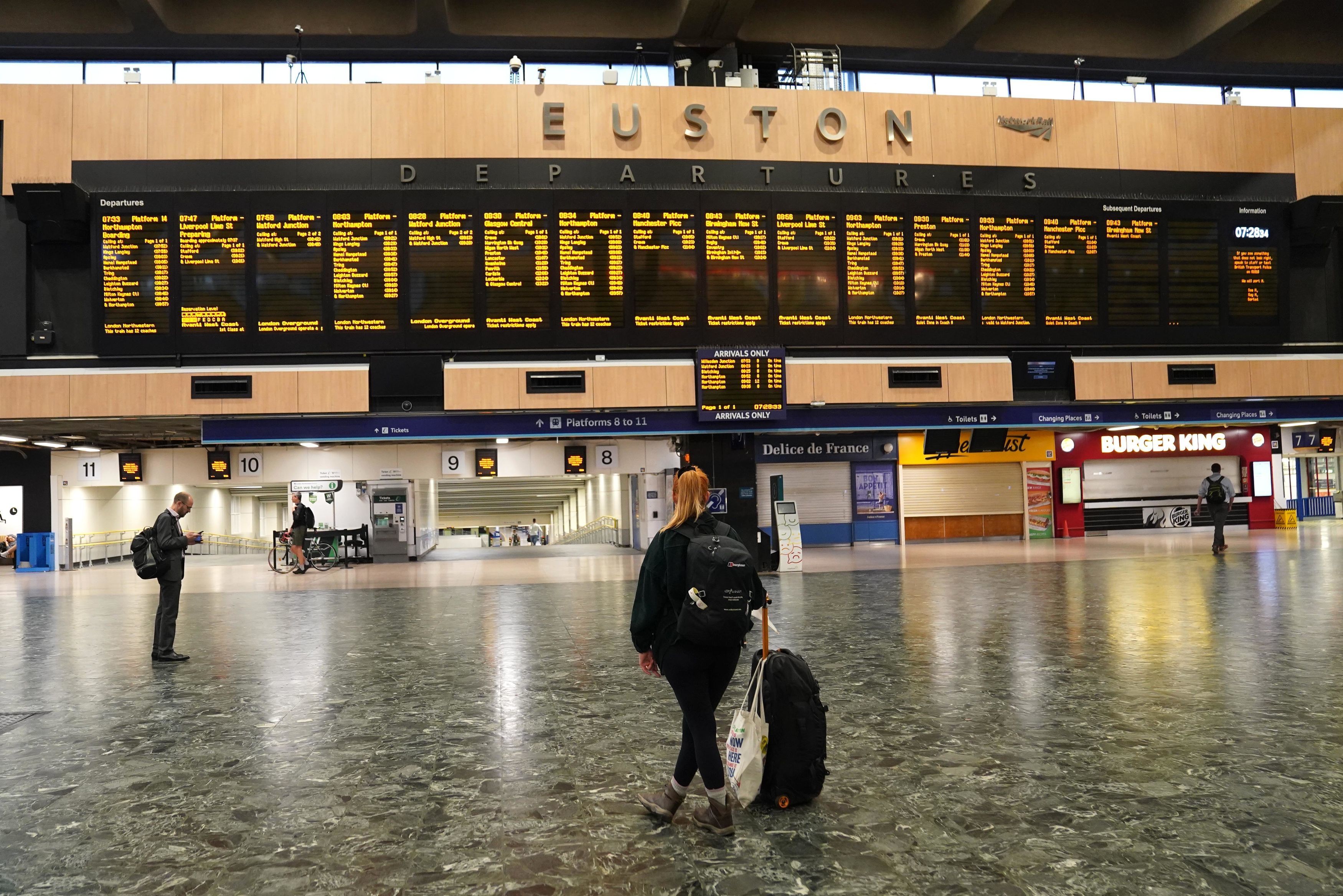There’s more to the recent wave of strike action than just unions versus bosses
Employers need to find ways of making jobs more satisfying, as well as paying people more, and working people have to help by improving their own productivity, writes Hamish McRae


Suddenly there is a return to the labour unrest of the 1970s. The rail and Tube strikes and the eight-day one by dock workers at Felixstowe are an echo of those earlier disputes, for the railways and the docks experienced unrest then.
They may be joined by GPs, who are protesting against having to offer weekend appointments, also an echo for in 1975 it was junior doctors and consultants that forced the Labour government to abandon its plans to stop their taking on private patients. Another professional group, barristers, are currently causing disruption and may go on all-out strike in September.
This is not just a British phenomenon. There are many other groups of workers around the world taking or planning similar action: easyJet pilots in Spain, mental health workers in California, the US railroads (in which Joe Biden has intervened to try to head off a nationwide strike), and so on. The UK may be experiencing more unrest than most other countries at the moment, but the pressures are global. Why?
There is a simple answer, and a more complex and a more lasting one. The simple explanation is the surge in inflation: people see their wages cut in real terms and seek to claw back at least part of those losses by demanding higher pay. It is hard to argue that they shouldn’t do so, but the negotiating position of different groups varies and some will be more successful than others.
Railway workers are clearly in such a position. In the US the special board created by President Biden suggested that the 115,000 railroad workers should get a 24 per cent increase in pay, plus thousands of dollars in bonuses.
But inflation will eventually come down, maybe not to the 2 per cent region it has been in for most of the past 30 years, but to something like that. It is profoundly unpopular, so politicians have to act. However – and this leads to the second answer – there are good reasons to expect that tensions will remain because the demand for labour right across the developed world is likely to get even stronger over the next 30 years than it is now. There are at least three reasons to expect this to be so.
First, the size of the people of conventional working age as a proportion of the total is starting to fall in just about every developed country, whereas until recently it was rising. OECD figures show the fastest declines are taking place in Japan and Italy. The OECD defines working age as 15 to 65, which is a bit odd, but the basic point stands.
As the baby boomers retire and birth rates remain very low, there will be fewer people to do the jobs. So pay has to go up. Maybe some countries will manage to increase birth rates. All sorts of incentives are being tried: women in Hungary who have four or more children pay no income tax for life. Maybe more older people will be persuaded to stay in work. But overall pressures are so huge that, well, there will be a shortage of labour far into the future.
To keep up to speed with all the latest opinions and comment, sign up to our free weekly Voices Dispatches newsletter by clicking here
Second, many of the new jobs need different skills. It is not simply a question of people needing more training and education, though that is certainly the case, and since it costs time and money to train people, wages will have to compensate for that. It is also that a lot of the new jobs need youth. It is not quite clear why this should be so, but children seem to be better at learning how to use technology than older people. Indeed, they do it intuitively in a way that their elders struggle to. This is great for the young, but since there are fewer of them, this will push up their pay rates.
Third, and perhaps the biggest driver of all, is the retreat from globalisation that seems to be taking place. This is very complex and, since we are in the middle of it, hard to quantify. But it is pretty clear all countries will try to rely rather less on buying goods and services from the other side of the world and focus on making more locally.
International trade has been falling as a proportion of total output since 2008, so this was happening long before the current disruption. But the combination of war in Ukraine and supply chain problems in east Asia are giving a further impetus. Security of supply has become more important than price. If goods and services are to be produced locally, that needs more people to build those goods and provide those services – so yet more demand for scarcer labour.
Done right, this is very good news for working people. Employers need to find ways of making jobs more satisfying as well as paying people more, and working people have to help by improving their own productivity. Collaboration, not confrontation, should be the motto. But alas, as the strikes show, we are not quite in that cooperative mode yet. There is still lots to learn on both sides.
Join our commenting forum
Join thought-provoking conversations, follow other Independent readers and see their replies
Comments
Bookmark popover
Removed from bookmarks